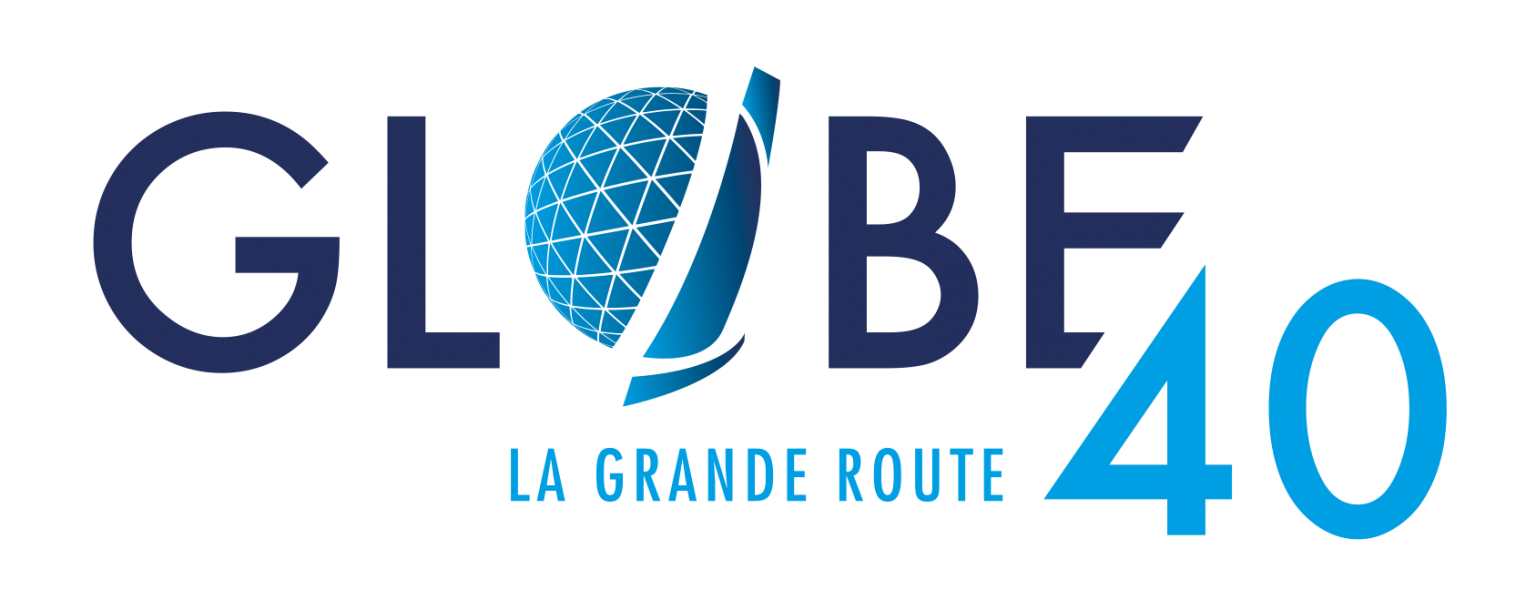GLOBE 40: “A LIFELONG DREAM”
The Round the World has to be one of the original dreams inherent in any passion for the sea.
The Round the World is a founding myth, which goes far beyond the mere sporting context; it is an accomplishment, a quest for self-fulfilment in the discovery of others.
What sailor, what offshore racer, what enthusiast of the sea, has never dreamed of sailing from the North to the South Atlantic, traversing the Indian Ocean, making for Polynesian shores, rounding Cape Horn and spending Christmas in Tierra del Fuego, drinking up the exhilaration of north-east Brazil and concluding a voyage in the balmy winter of the West Indies?
To achieve this experience SIRIUS EVENEMENTS is delighted to announce the launch in the summer of 2021 of the first edition of the GLOBE 40 – The Grande Route.
The GLOBE 40 is a Round the World race, which is accessible to both informed amateurs and professional skippers. It is a Round the World, which combines competitive performance, adventure and travel, a Round the World whose course takes skippers off the beaten track and offers up some unique stopovers, a Round the World on a craft that is accessible both competitively and financially.
THE GLOBE 40 is a Round the World, which heralds a return to the original values of offshore racing via a modern-day “Grande Route” (“ big road”), as Bernard Moitessier’s “Longue Route” (“long road”).
A COURSE BUILT FOR THE EVENT’S PUBLIC AUDIENCE
The course has been constructed according to the values exhibited for the event: the sporting competition, as well as the adventure and the voyage, legs of varying duration, a rhythmical course, no ‘marathon’ legs of over 30 days or so at sea, no long courses in the lower latitudes of the ‘deep south’ save for the cape roundings, together with some unique destinations. It is a course which comprises both long periods of offshore and a significant coastal portion with numerous islands as passage marks.
The race start will take place in the summer of 2021 with a start / finish destination primarily targeting French soil, and to date we’re in discussions with several groups, without closing the door to proposals from another European offer.
Next, there will be an introductory leg of around 2,200 miles to the Cape Verde Islands and its main marina in Sao Vicente, with the island of Madeira and the Canary Islands as passage marks, framed by the wild beauty of the volcanic islands, the scents of nearby Africa, the first exotic aromas.
The second leg is a big 6,200-mile section over the ground, which equates to around 7,000 miles (or around 30 days for the first boat) towards the South Atlantic and African soil again with the passage of the Cape of Good Hope, a course of around 400 miles along the South African coast and then a climb up into the Indian Ocean to the South of Madagascar to Mauritius, a multicultural pearl amidst landscapes truly beyond compare.
Next comes another long 6,200-mile course setting sail from Mauritius as a third leg, leaving the wonderful Rodrigues Islands to starboard, with a dive down to the heart of the Indian Ocean towards Australia and its famous Cape Leeuwin, an island whose name seems destined to sport a lighthouse (Eclipse Island) to negotiate and then another dive down towards the Bass Strait before crossing the Tasman Sea towards Auckland, a global Mecca of Sailing if ever there was one.
Having sampled the delights of New Zealand’s shores and lands, whose peaceful people have managed to blend western and Maori cultures, this will be the grand start of this fourth leg to French Polynesia, surely the ultimate landfall in our maritime dreams. Ahead lies a 2,100-mile climb towards the Austral Islands, bound for Bora-Bora and a course amidst the Leeward Islands of the Society archipelago before reaching Papeete.
The fifth leg will take us away from balmy Polynesia for a descent bordering on 4,400 miles towards the southern fringes of South America, in search of the legendary passage around Cape Horn before making for the Argentinean town of Ushaïa at the heart of Tierra del Fuego, the most southerly town on the planet, via the Beagle Channel.
The climb along the coast of South America, including Argentina, Uruguay and Brazil, will be on the programme for the sixth leg, which involves a 3,300-mile sprint to Recife, the large city of north-east Brazil; the Brazil that lingers in all our imaginations. Considered to be the Venice of Brazil, Recife with its heavenly beaches and its colonial architecture, is deemed to be one of the country’s main tourist destinations.
The 7th leg will slip along for 2,000 miles in favourable winds and currents to the south of the Antilles Arc and the beautiful island of Grenada. A former French colony, the island with its crater lakes and its slopes carpeted in tropical forest, is a jewel to behold.
Finally, there’s the fine return sprint across the Atlantic to Europe stretching some 3,600 miles for the 8th and final leg, with the Azores archipelago as a passage mark.
In total then, an Odyssey spanning approximately 30,000 miles and 140 days at sea for the first boat, provisionally setting sail on Sunday 27 June 2021 and returning mid-March 2022 for the frontrunners, late March for the tail end of the fleet. The legs for the front runners will be spread over 12 to 24 days, whilst the duration of the last leg is calculated at 8 days. The Great Circle company has been commissioned to carry out a climatological study of the course.
This course may be modified by a stopover or two according to the exchanges with the potential towns, but it will retain the spirit of the described event.
SAFETY: A PRIMARY CONCERN
Offering as secure an event as possible has been the primary concern in the creation of the GLOBE 40.
This relates first of all to the choice of course: limiting the duration of the sailing in the lower latitudes, alternating the long legs (30 days) and those of medium duration (10 to 15 days) and ensuring that there are potential points for technical assistance along the course.
Furthermore, it offers a course, which only negotiates safe maritime spaces, with stopovers in stable countries, which is not necessarily something you can take for granted in the world as it is.
The event’s approach to safety also includes the implementation of the OSR (Offshore Special Regulations) category 0 rules, a rigorous qualification mechanism, which will be made official in the Notice of Race, with all the latest tracking tools to provide the competitors with the best possible standard when racing (positioning beacons, weather assistance and medical assistance).
A PROGRESSIVE PREPARATION SCHEDULE
Launched today, the GLOBE 40 project is officially circulating a race plan which sets out the basis for the sports organisation of the event.
In the preparation schedule for the event, this first leg shall be followed for the Nautic Paris boat show next December at the latest by a second leg with the publication of the official Notice of Race, with the host city for the start / finish being made official and the media campaign announced. Contact is already being made with several French cities interested in being associated with the original edition of this round the world race, which is due to be hosted every 4 years.
A step-by-step registration mechanism is being put in place for the crews (see race plan): upon publication of the race plan, any interested crews are invited to make an official declaration of interest to the organisation without any financial commitment, a procedure which will enable a first connection to be established together with the creation of a first list. Upon publication of the Notice of Race, a pre-registration mechanism will be put forward with a refundable financial commitment. For a third step on 1 July 2020, namely a year or so before the start of the event, part of the binding registration fee will be due for payment, but the vast majority of it will still be reimbursed if the event does not take place. Finally, for the fourth and final step, upon actual confirmation of the 15th entry and by 31 December 2020 at the latest, the event will be definitively confirmed.
The organisation clearly states that it has the firm intention of not launching the event with fewer than 15 entries. The whole process described above is aimed at enabling projects to move forward with confidence with regards to the preparation of the event and creating the necessary emulation.
In terms of the logistics, and included in the entry fee, technical assistance is planned, with the collective transport of gear and the presence of technicians appointed by the organisation. Brainstorming in this regard is already underway with the V1D2 yard in Caen and Marc Lefebvre, an expert in technical assistance. For each leg, the organisation will negotiate and offer the teams a logistics pack including the prices negotiated in terms of air transport, accommodation and catering.
The press will be invited to a briefing in September to announce how the project is progressing.
THE MEDIA CAMPAIGN: TALKING ABOUT THE VOYAGE / A GRAND CULTURAL ADVENTURE
The narrative of the voyage and of the race will be an intrinsic part of the project, to ensure it’s not just a sporting challenge but also a grand cultural, pedagogical and educational adventure.
The race will have real meaning thanks to a connection between the various legs, with some brainstorming required regarding a circumnavigation of a planet confronted with its challenges perhaps in 2021.
There will also be image and film production for each leg, a media campaign aimed not only at the traditional media but also the media dedicated to travel and adventure. The whole thing will have an international dimension that matches the competitive line-up.
The course offers up fantastic potential for images, where the adventure experienced by the crew has great scope for expressing emotion.
THE GLOBE 40 – The Big Adventure and some.

